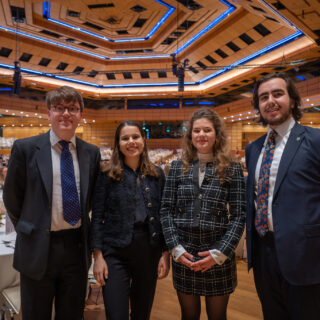Every year, the City Law School sends a team of mooters to the Vis Moot in Vienna. For the 2024/25 academic year our team consisted of Cecily Day, Kerem Mumyakmaz, Henry Tann and Karina Vasiliades. They were coached by Daria Efimova, a CLS alumni. You might be considering applying next year? Well, read on as Kerem fills us in on their experience…
A few weeks ago, myself and three of my teammates accompanied by our coach – Daria – attended the 32nd Annual Willem C. Vis International Commercial Arbitration Moot. The Vis Moot Is the preeminent international commercial arbitration moot that attracts over 3000 mooties from across the World to plead on a dispute concerning a commercial contract that is (or not!) governed by the CISG. The moot was founded to promote the CISG and to educate students on it.
The preparation
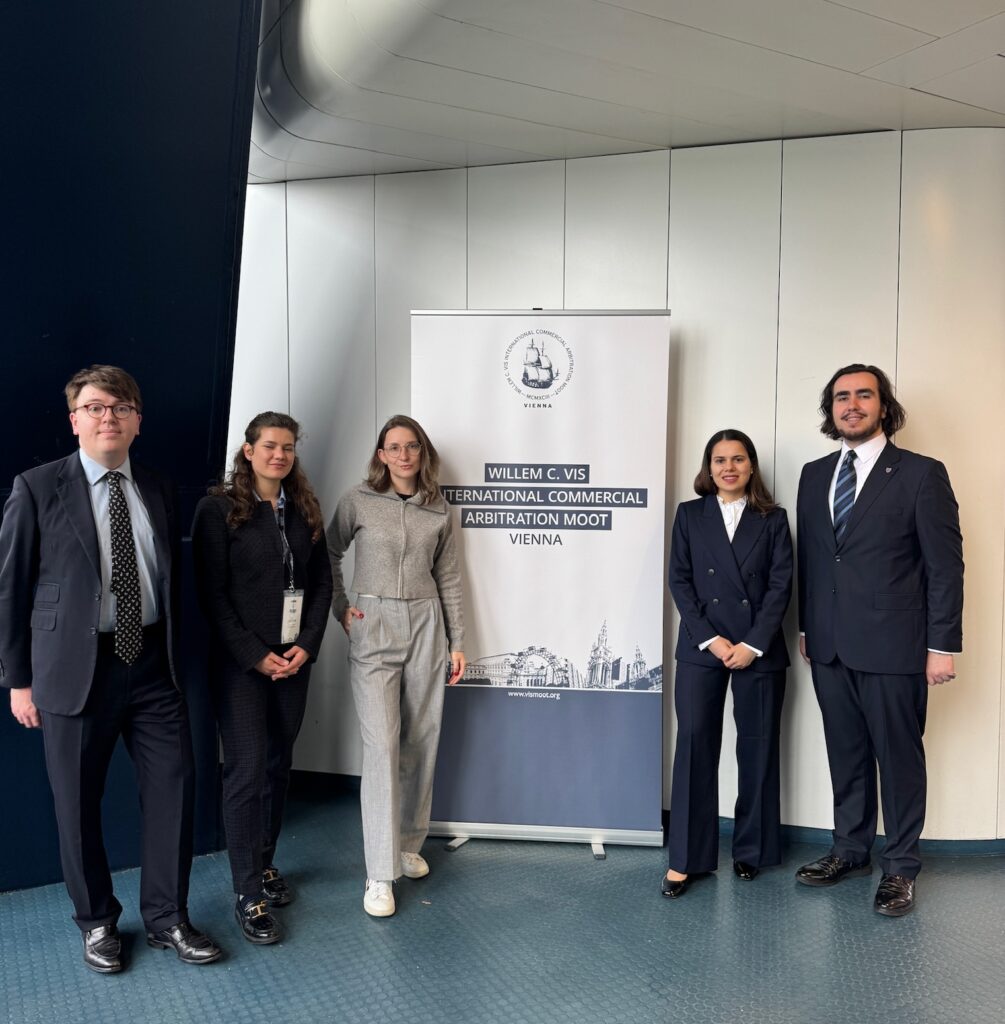
Preparations, however, for this moot began far earlier than a couple of weeks ago. Back in October, The Problem, a 70 page record detailing various exhibits, communications and contracts between the parties, was released. Our first task was to draft a Claimant memorandum. This consisted of detailing our various arguments for the procedural aspects such as the inclusion or exclusion of evidence and whether the tribunal had jurisdiction. We also wrote written arguments in the memorandum on the substantive aspect as to whether the CISG was validly excluded, or whether the CISG was even applicable to the contract at hand. This was followed by submitting our respondent memorandum, an equally delicate task which responded to a Claimant memorandum from another team – we were paired with the home side University of Vienna (a traditionally strong team). Responding to subtle points of law was every bit as enjoyable as responding to their laboured metaphor that their submissions were a painting as we scrutinised every thickly smeared brushstroke. We took care to respond to their legal arguments and to reply to their Drafting memoranda on intricate areas of international arbitration law, while juggling learning law for the first time was quite an experience!
Pre-Moots
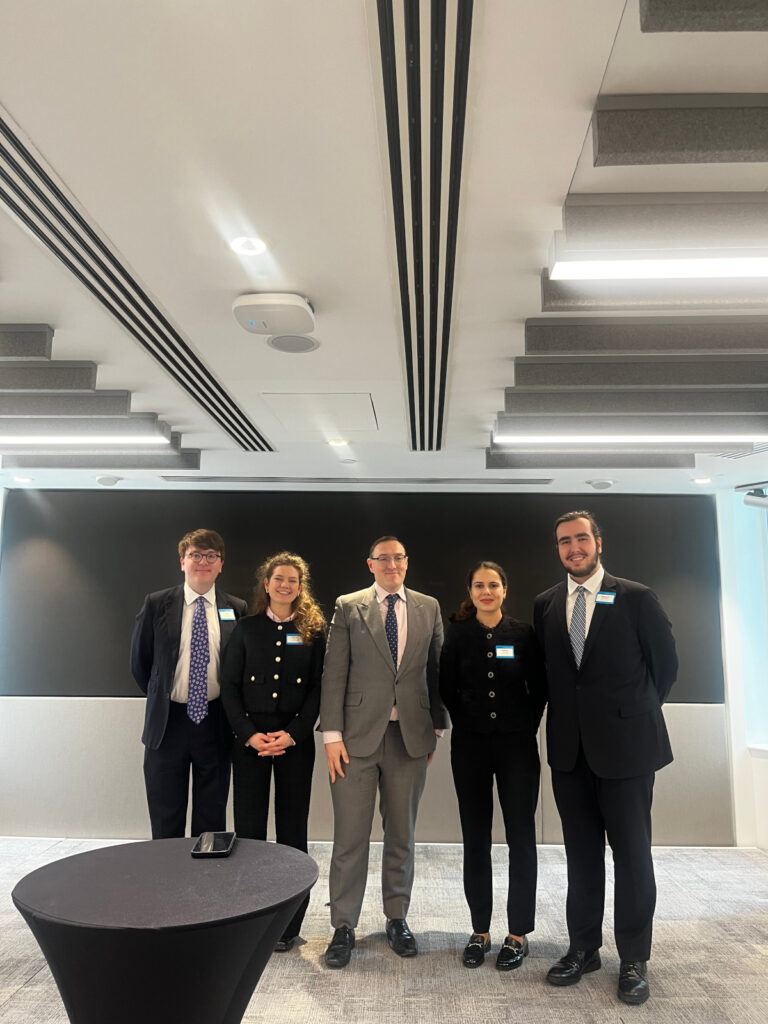
After the submission of our memoranda, it was time for the pre-moots. Our first pre-moot was the London Pre-Moot which attracts a strong number of teams across Europe. This was our ‘trial by fire’ as unlike many other teams this was, for most of us, our first ever competitive moot, let alone in international arbitration! We competed against traditionally quite strong teams, such as the University of Geneva and the University of The Hague. Following the London Pre-Moot, we competed in that same week in the White & Case London Pre-Moot, where the team performed really well! We competed against similarly strong teams such as Gray’s Inn and the LSE. Fortunately, in the end, the City Law School team came away with first place victory. (Ed. note: Kerem is too honest to note that he was also named Best Oralist!) A couple of weeks afterwards, we attended the LSE Pre-Moot, where the team switched our positions, pleading for the other side in our pairs for the first time competitively.
And so to Vienna!
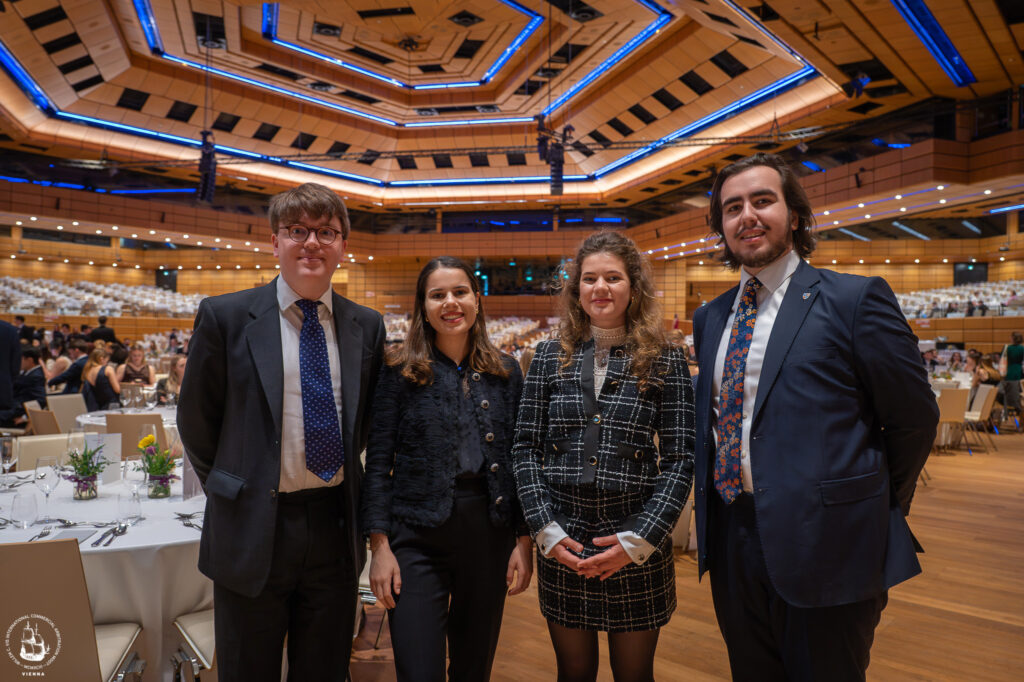
On 11 April we took a short flight to Vienna, continuing our preparations at the airport, on the plane and in the taxi.
The city, with its rich history and vibrant culture, quickly became a backdrop for one of the most rewarding experiences of our academic lives. The first evening we attended the Opening Ceremony, a lively event which warmly welcomed over 380 teams as well as over one thousand arbitrators from around the world.
The series of oral rounds began the next day. The atmosphere was both exhilarating and daunting as we prepared to present our arguments before panels of esteemed arbitrators from around the globe, many of whom are leading practitioners and academics in international arbitration. In total across the week, we pleaded in four oral rounds in teams of two, acting for either Claimant or Respondent. We faced a formidable opponent in each round, starting against the University of Vienna, followed by rounds against Paris Dauphine University, University of Milan-Bicocca and NOVA University Lisbon.
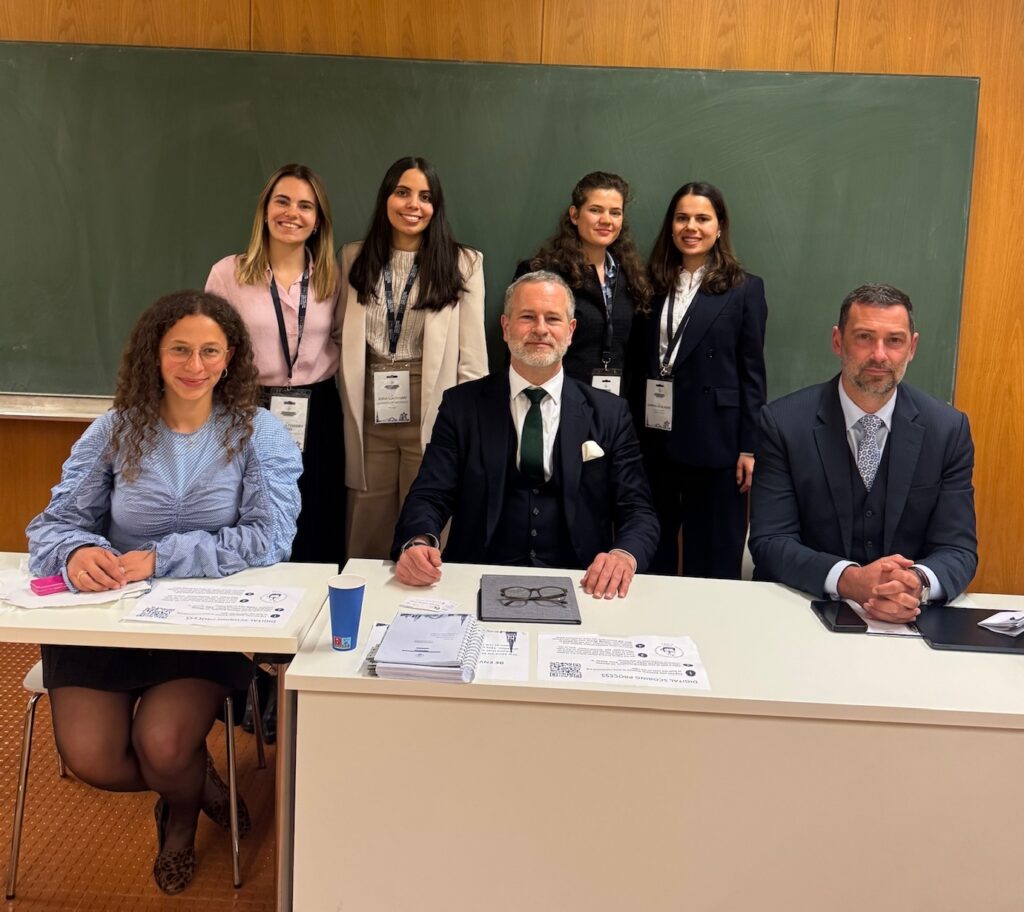
Each encounter was a unique challenge, with different arbitrators bringing their own perspectives and expertise. Common law teams flooded their arbitrators with persuasive case law and precedent while the civil law teams invoked the great names of arbitration academia, Schlechtriem, Schwenzer, and even Born to buttress their submissions. The arbitrators expected more than just factual or doctrinal recitation, they challenged us to think on our feet, defend our positions under time pressure, and respond to unpredictable questions with clarity and composure. The dynamic nature of each round mirrored actual arbitration hearings, providing a bridge between legal theory and practise. The feedback we received was invaluable, helping us refine our arguments and presentation skills.
Throughout the competition, our coach, Daria, offered guidance and encouragement. Her insights and strategic advice were instrumental in helping us navigate the complexities of the moot. Thanks must go to her as well as Dr Frank Zhang, and other countless academics and practitioners who have helped us on our journey.
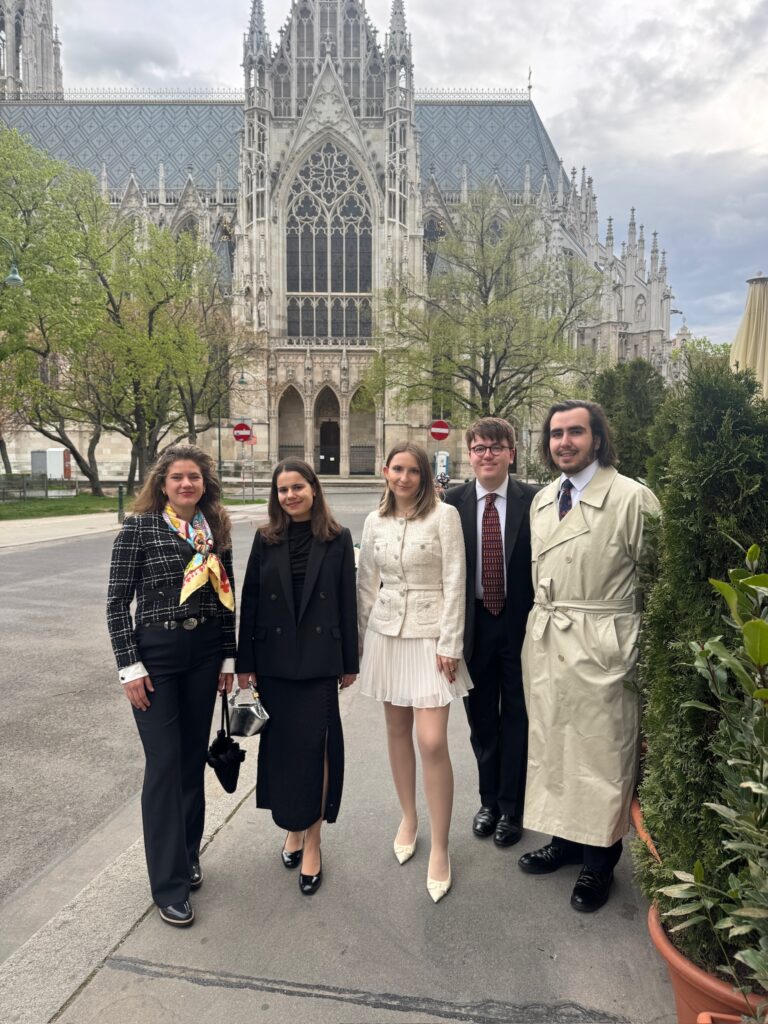
Jurisdiction, admissibility, and Klimt makes for a persuasive combination and we wholeheartedly recommend the Vienna Vis Moot to future City Mooters.
Kerem is currently reading for the postgraduate Diploma in Law (GDL). He previously read Politics and International Relations before coming to City St George’s.
Kerem is particularly interested in the law of contract; he is in the process of co-authoring an article on the usage of scientific linguistics in contractual integration and its potential implications on legal certainty. More broadly, he is an aspiring barrister, a keen mooter and debater.

